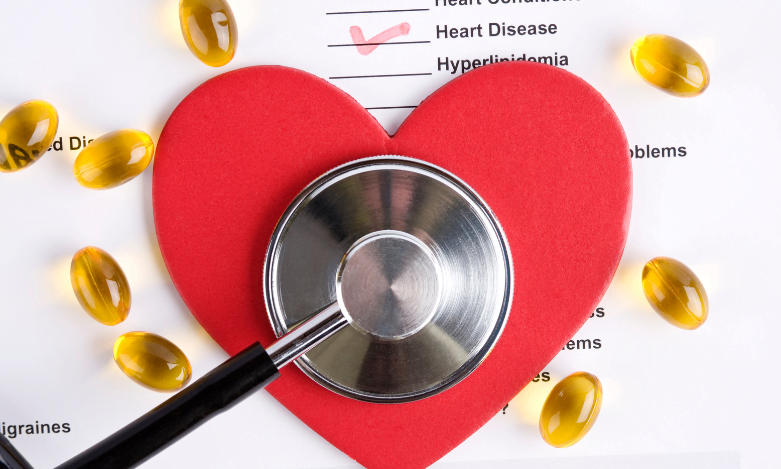5 Most Common Heart Disease: Causes, Symptoms & Treatment.

Heart disease also called Cardiovascular disease describes many conditions that affect the heart. Cardiology is the study of the heart which deals with cardiac disease, blood disorders, and how to diagnose and treatments. Below are the types of heart disease, symptoms of heart disease, and treatment of the disease.
Types of Heart Disease:

5 Most common heart diseases are:
1. Coronary Artery Disease
2. Heart valve disorders
3. Cardiomyopathy
4. Pericardial disease
5. Ventricular Septal Defect
1. Coronary Artery Disease: Coronary artery disease is a heart disease that affects the heart arteries that are responsible for blood, oxygen, and nutrient supply.
Causes: Coronary artery disease happens due to a blockage in the artery that limits the blood flow.
Symptoms: This can lead to chest pain, heart attack, abnormal rhythms, or heart failure.
Treatment: There are many options for treatment in India for this disease with a success rate of 97 percent. It may include medications and procedures like
(I) Coronary angioplasty,
(ii) Stent placement or
(iii) Coronary artery by-pass surgery CABG.
2. Heart valve disorders: Heart valve disorder is a heart disease when one or two of the valves do not function properly and it disrupts normal blood flow.
Causes: It can happen due to Infection of the heart valves, high BP, connective tissue disorders, and atherosclerosis.
Symptoms: Weakness, Chest Pain, Swelling in feet, ankles or abdomen, abnormal heartbeats, fainting.
Treatment: There are two surgical options for treatment in India:
(I) Valve repair and (ii) Valve replacement surgery.
Valve replacement has two types:
(I) Mechanical valve and (ii) Tissue or Biological valve.
Most cardio surgeons prefer tissue valve replacement.
Tissue or biological valve replacement has lower side effects of bleeding, blood clots, infection, and life-long than the mechanical valve.
Valve replacement can be done by open surgery or minimally invasive surgery.
Minimally invasive cardiac surgery has many advantages: No blood loss or less, the risk of infection is very low during the surgery or after, faster recovery and retention to your normal life, and small scares.
3. Cardiomyopathy (heart muscle disease): It is a cardiac disease that occurs in the muscles of the heart. The heart muscles become thickened or stiff which causes weakness in your heart and the inability to pump blood normally.
Causes: Cardiomyopathy has many causes it might be due to genetic heart disorders, reactions to certain medicines, alcohol consumption, or infections because of specific viruses.
Symptoms: Chest pain, Swelling in feet, ankles and legs, chest pain, fatigue, Shortness of breath, and Palpitations.
Treatment: Cardiomyopathy treatment options can be suggested depending on the severity of the disease. Treatment options might include medications, devices to help the heart pump, ablation surgery, septal myectomy surgery, or Heart Transplant.
4. Pericardial disease: It is a heart disease that occurs in the surrounding heart tissue called pericardium. This disease causes inflammation and infections due to viruses or injury.
Causes: Viral (most common), bacterial, fungal, or parasitic infections, Injury to the heart or chest.
Symptoms: Sharp chest pain, Chest pain, Fever, Irregular heartbeat.
Treatment: The pericardial disease has many treatment options depending on the cause and the disease severity treatments might include medications, surgery to remove and drain the excess fluid by inserting a small catheter, or removing a part of the pericardium (pericardiectomy).
Ventricular Septal Defect (VSD): It is a common congenital heart problem that forms a hole inside the heart. The hole appears on the wall that separates the lower chambers in the heart which increases the risk of high blood pressure in the lungs and leads the heart to work and pump harder.
Causes: Genetic, environmental, and present at birth.
Symptoms: Small VSD is asymptotic and often close on its own, shortness of breath during feeding or physical activity in infants and children, and poor growth in infants, fatigue.
Treatment: If the hole is not closed while growing the baby so needed to closure surgery to close the hole by using a patch or stitches.
Most ventricular septal defects get cured and close on their own in babies in the first six months if not then need to perform surgery as soon as possible to avoid any other heart complications.
What is the most common heart disease?
Coronary Artery Disease (CAD) is also known as ischemic heart disease. Coronary Artery Disease occurs when coronary arteries gets narrowed or blocked which supply blood to heart muscle. It can be due to cholesterol, fat deposits, calcium and other substance found in the blood.
Coronary Artery Disease CAD is the major cause of death worldwide.
References
American Heart Association: Heart Disease Facts.
Centers for Disease Control and Prevention (CDC): Heart Disease.
Mayo Clinic: Coronary Artery Disease.
National Heart, Lung, and Blood Institute: Coronary Heart Disease.
Cleveland Clinic: Coronary Artery Disease.
WebMD: Coronary Artery Disease.
Johns Hopkins Medicine: Coronary Artery Disease.
Harvard Health Publishing: Heart Disease Prevention.
What country is #1 in heart disease?
Highest number of Coronary Artery Disease (CAD) countrywise are #1 China, #2 India, #3Russia, #4 USA and Indonesia Coronary Artery Disease (CAD).